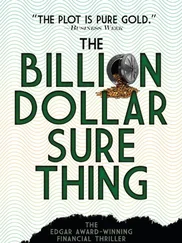Paul Moorcraft - The Anchoress of Shere
Здесь есть возможность читать онлайн «Paul Moorcraft - The Anchoress of Shere» весь текст электронной книги совершенно бесплатно (целиком полную версию без сокращений). В некоторых случаях можно слушать аудио, скачать через торрент в формате fb2 и присутствует краткое содержание. Жанр: Триллер, на английском языке. Описание произведения, (предисловие) а так же отзывы посетителей доступны на портале библиотеки ЛибКат.
- Название:The Anchoress of Shere
- Автор:
- Жанр:
- Год:неизвестен
- ISBN:нет данных
- Рейтинг книги:4 / 5. Голосов: 1
-
Избранное:Добавить в избранное
- Отзывы:
-
Ваша оценка:
- 80
- 1
- 2
- 3
- 4
- 5
The Anchoress of Shere: краткое содержание, описание и аннотация
Предлагаем к чтению аннотацию, описание, краткое содержание или предисловие (зависит от того, что написал сам автор книги «The Anchoress of Shere»). Если вы не нашли необходимую информацию о книге — напишите в комментариях, мы постараемся отыскать её.
The Anchoress of Shere — читать онлайн бесплатно полную книгу (весь текст) целиком
Ниже представлен текст книги, разбитый по страницам. Система сохранения места последней прочитанной страницы, позволяет с удобством читать онлайн бесплатно книгу «The Anchoress of Shere», без необходимости каждый раз заново искать на чём Вы остановились. Поставьте закладку, и сможете в любой момент перейти на страницу, на которой закончили чтение.
Интервал:
Закладка:
That was all she could remember the next morning, yet she felt that Margaret was thanking her for defending her memory and their family’s honour.
After Matins, the abbess instructed Christine to return to her father’s house. She thanked the abbess and took leave of the convent, but asked to be allowed to depart from the garden door via Castle Arch and through the “gates” or passageways of the town. She did not want to pass again through the square, explaining that she had witnessed too much suffering and pain, even if it was to an evildoer.
Yet as she walked alone through the great east gate of the town, she saw Sir Richard’s head impaled on a pike above the wooden arch. Shuddering at the sight of his bloated face, she hurried past, knowing that his disembodied features would haunt her nightmares.
She had endured enough of man’s inhumanity to man, and relished the tranquillity of the countryside after the foetid smells of the town, but at a crossroads a mile or so along the road, near the leper hospital, she beheld another cruel sight: a naked man buried head first, up to his waist. With caution she moved towards the strange apparition and touched his ankle, still warm. Transfixed by further horror, she did not notice an old leper woman watching her.
The woman, swathed in filthy rags, hailed Christine.
“What be this, mistress? Why bury a man like this?” Christine asked.
The woman, cackling, replied, “The judges made this so. The villeins were dealt with first before the king’s men smote down Sir Richard.”
Christine said gently, “Sir Richard’s crimes are known to me, but what of this malfeasant here, naked in the sight of God and man?”
“I be sorry to offend a lady in holy orders,” said the old woman, “but he be killed for his sodomy. Sometimes they hang ’em, sometimes they bury ’em so, to fit their crime. Have you no eyes afore today? ’Tis not uncommon in this town.”
“I live a long way from here, in Shere.”
The old woman looked confused. “Don’t know all ’em villages roundabouts. But upon the holy tears of Christ, you be crying too. Did you know this man, assumin’-beggin’ your forgiveness-that you can recognise his lower parts?”
Christine looked shocked. “No, I know him not. I cry for all the hurt and pain in this land. So many die by the hands of men, when there be pestilence enough from nature. I pray for His coming to cleanse this land.”
“Amen,” said the old woman, as she shuffled off with the help of her stick.
The long walk home did not daunt Christine, now strong with exercise, food and sated vengeance-but a vengeance that seemed empty with her Margaret lost from this world.
Duval spent three long evenings editing the section describing Christine’s months of freedom. His time was not entirely his own: he had to spend two days in Guildford on church duties, which included another fractious interview with the bishop, still fervent about new American methods of modernising the two thousand years of tradition which graced the Church of Rome. Between the distractions in Guildford and his writing, Duval was not finding the time he wanted to spend with Marda.
He imagined her huddled in her cell. Of course he wanted her to feel comfortable, but it would only work if she did things his way. The other girls had been stubborn. They would not listen.
Especially Denise. Duval had not opened Denise’s door for over four years, his mark of respect for the dead.
He remembered a buxom, strong girl, all kicking and screaming; lots of temper tantrums, including one that had caused him an injury. In the end he had left her to her own devices for a few days, but then, somehow, he hadn’t felt like confronting her red face, bulging eyes, the endless shrieking. A few days had become a few weeks, and finally his conscience and curiosity impelled him into one brief visit to her cell. Thereafter, he had cut Denise out of his mind. Such a difficult girl.
He had left her to God. He did not kill her; she had simply died.
In his more contemplative moments, he sometimes likened his actions to the glorious Inquisition. It had never killed; the priests handed over their victims to the secular arm of the state, and it was they who burned heretics at the stake. When the sinners were handed over to secular authorities, the Church issued a prayer which, while asking that there be no shedding of blood, also had the effect of signifying by what manner of death the wrongdoer should glorify God. The Church thus absolved itself from all responsibility.
Nevertheless, seeing Denise’s skeleton had shocked him. Afterwards, he had scrubbed his whole body for over an hour. A scintilla of remorse entered his heart.
If Duval had been a psychiatrist, and sane enough to analyse himself, he might have admitted that his own obsessive cleanliness was part of the denial of his actions, a way of relegating misdeeds to the lower levels of his subconscious; that even he, a murderer, disliked seeing corpses was perhaps also a subliminal defensive reaction to his own innate destructiveness.
Duval, in his conscious persona as a priest, could certainly understand why Marda was upset by the sight of Denise, but if the shock led her into the path of obedience it would have been worth it. It would save her life, maybe her soul, and make God and His servant happy.
No, he had done it for Marda’s own good. He didn’t want to mollycoddle the girl. He would keep his distance to give her time to settle down and, anyway, he was quite busy with his other work in Guildford.
But he always returned to the primary impulse of his life, the recreation of a spiritually successful anchoress in the modern world. To the outside secular world, Duval might seem a failure, a mere second-rate priest, an Oxbridge scholar who had wasted his potential. But his hidden devotional work, his search for the divine channel to the ultimate energy that suffused the planet, would be worth-if such baubles mattered-a thousand Nobel laureates.
Psychologically, this was a holy transformation of impotence into the experience of omnipotence. Through his work, Duval strove to become the master of his spiritual life, and hence the highest quality of spiritual life had to be nurtured in his chosen ones. He wanted to control, not destroy, and while that meant the issuing of punishments and threats of punishment, he was demanding spiritual surrender, not bodily annihilation. He craved power over his novices’ inner lives.
He occasionally admitted to himself that he was stimulated by their helplessness, but the guests who failed him had been weak in mind and body-they had given up and chosen death. So he would try to distance himself, a little, from the cellar for a while, but he didn’t want to become too forgetful. He would feed Marda, and when she was ready he could start his work on her.
On the fifth day after Marda’s arrival, Duval decided to begin her induction course. He walked down the corridor, opened the grille, and through it spoke to her quietly, trying his best to be comforting. After all, he had some experience: he was a Catholic priest.
“Marda, how are you?” he said, his voice full of concern.
Marda cringed in the corner; she now equated the light with her tormentor.
“Are you cowering from me, or from the light? Is it too bright for you? I thought that perhaps you would have had enough of the darkness down here. Who is more foolish, I wonder, the child afraid of the dark, or the man afraid of the light? Ah, but I came to comfort you, not to philosophise…Really, how are you? I do care, you know.”
Marda said nothing. Duval simply stared at his captive. After a minute or so, he tried again: “I am sorry that opening up Denise’s room upset you.” Duval continued ruefully, “It upset me, too. I hadn’t opened it for a very long time.”
Читать дальшеИнтервал:
Закладка:
Похожие книги на «The Anchoress of Shere»
Представляем Вашему вниманию похожие книги на «The Anchoress of Shere» списком для выбора. Мы отобрали схожую по названию и смыслу литературу в надежде предоставить читателям больше вариантов отыскать новые, интересные, ещё непрочитанные произведения.
Обсуждение, отзывы о книге «The Anchoress of Shere» и просто собственные мнения читателей. Оставьте ваши комментарии, напишите, что Вы думаете о произведении, его смысле или главных героях. Укажите что конкретно понравилось, а что нет, и почему Вы так считаете.












